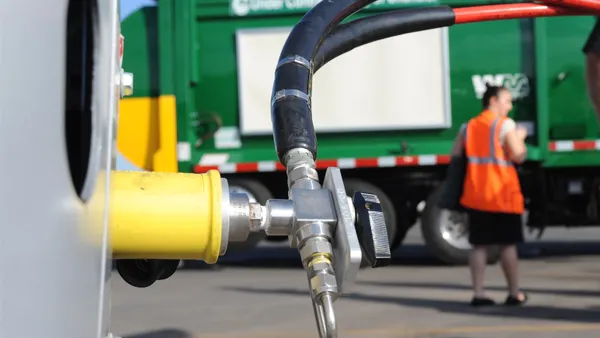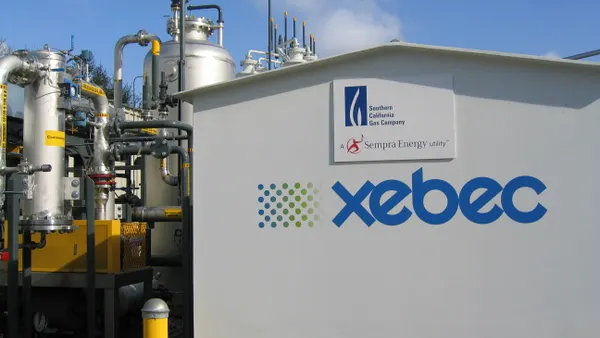Dive Brief:
- Fulcrum BioEnergy announced last week the start of construction for phase two of its first waste-to-fuel project, the Sierra BioFuels Plant, in Storey County, Nevada. Phase two, the biorefinery, will take MSW feedstock prepared at Sierra's Feedstock Processing Facility (FPF) — completed in 2016 during phase one — and process it into low-carbon transportation fuel.
- The overall Sierra BioFuels Plant, which is anticipated to convert approximately 175,000 tons of MSW into more than 10.5 million gallons of fuel annually, is slated to begin operations in Q1 of 2020.
- Fulcrum said the Sierra plant will be the first commercial-scale plant of its kind in the nation, which will help to extend the life of landfills and reduce greenhouse gas emissions (GHG) by 80% compared to the use of traditional petroleum transportation fuel.
Dive Insight:
The completion of this facility will not only be a boon for Fulcrum, but also for the aviation industry, as it seeks to reduce carbon emissions and decrease its environmental footprint. In 2016, BP invested $30 million in Fulcrum in a 10-year deal that will allow BP to buy 50 million gallons of biofuel from the company, following similar investments from United Airlines and Cathway Pacific Airways.
In a statement to the Chicago Business Journal, a United spokesperson said its investment in Fulcrum will help United "hedge against the volatility of traditional fuel" in terms of pricing.
The facility will also be an opportunity for Nevada to boost its diversion rate and extend the life of the Lockwood Regional Landfill, operated by Waste Management. Affiliates of Waste Management and Waste Connections have long-term agreements with Fulcrum to provide municipal solid waste feedstock for the facility and, if operations are successful, the plant could be a business opportunity for additional waste industry partners.
Biofuels Digest reports that, following the completion of the Sierra BioFuels plant, Fulcrum will break ground on its second commercial-scale biorefinery in Chicago, which is home to United's largest hub at O'Hare International Airport. Despite significant efforts to boost diversion rates, Chicago has long struggled to keep its MSW out of the landfill, and this effort could be a saving grace to elevate a circular economy across the city.










